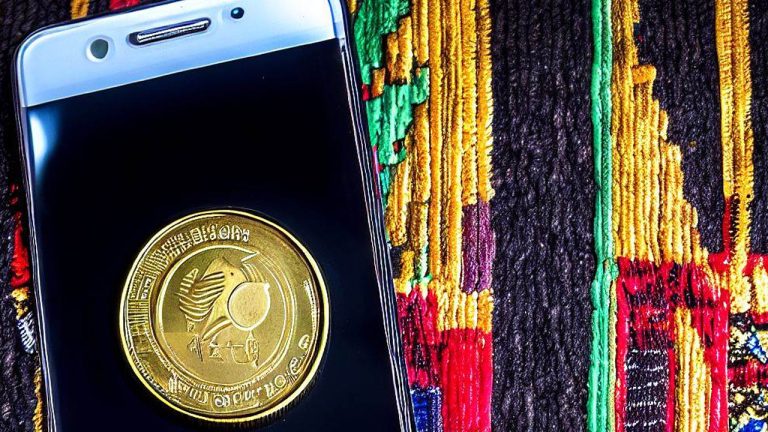
The Reserve Bank of Zimbabwe (RBZ) has said it will start issuing gold-backed digital tokens on May 8. The first phase of the launch will see the digital tokens being issued for “investment purposes with a vesting period of 180 days.” The RBZ also revealed that the gold-backed digital tokens “would be used both as a means of payment and a store of value.”
Gold-Backed Tokens Additional Value-Preserving Instruments
According to the Zimbabwean central bank, it plans to start issuing the recently mooted gold-backed digital currency on May 8. The digital currency, which will be backed by the gold held at the Reserve Bank of Zimbabwe (RBZ), is expected to complement the physical gold coins that went into circulation in July 2022.
The announcement of the digital currency’s issuance date came just a few days after the central bank governor, John Mangudya, was quoted revealing the RBZ’s intention to fight local currency depreciation with gold-backed digital currency. Also, as reported by Bitcoin.com News, Zimbabwe’s central bank hopes to curb the local demand for the greenback with the soon-to-be-launched digital currency.
However, in a statement issued on April 28, the RBZ governor revealed that the issuance of the gold-backed digital tokens “is meant to expand the value-preserving instruments available in the economy.” The gold-backed tokens are also intended to “enhance divisibility of the investment instruments and widen their access and usage by the public.”
Gold-Backed Digital Currency as a Store of Value
As per the statement, the issuance of the digital currency will be split into two phases. The first phase will see the digital tokens being issued for “investment purposes with a vesting period of 180 days.” According to the RBZ, the gold-backed tokens will be redeemed in the same way as physical gold coins are redeemed. Prospective buyers can acquire digital tokens using local or foreign currency, the statement added.
The RBZ also suggested that current holders of the Mosi-oa-Tunya gold coins will be able to acquire the digital coins using the local banking system.
Under the second phase, residents with digital tokens held in e-wallets or cards will be able to use such funds to settle transactions.
“The gold-backed digital tokens held in either e-gold wallets or e-gold cards will be tradable and capable of facilitating Person-to-Person (P2P) and Person-to-Business (P2B) transactions and settlements. It, therefore, means that the gold-backed digital tokens would be used both as a means of payment and a store of value,” the RBZ said in the statement.
Meanwhile, Fadzayi Mahere, the spokesperson of Zimbabwe’s main opposition party, warned in a tweet that the RBZ’s gold-backed digital currency initiative could be illegal.
Register your email here to get a weekly update on African news sent to your inbox:
What are your thoughts on this story? Let us know what you think in the comments section below.
Comments
Post a Comment